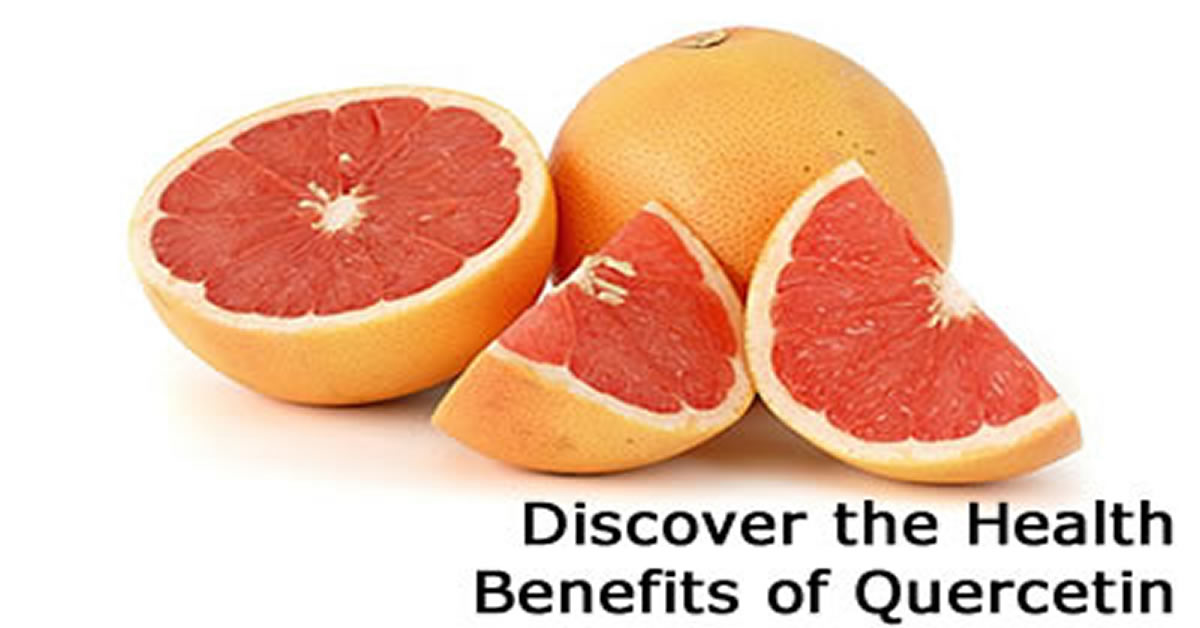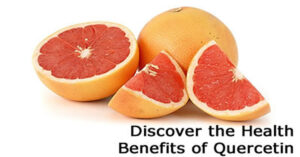Quercetin: A Comprehensive Guide on its Benefits, Effectiveness, and Safety
Quercetin is a naturally occurring flavonoid found in a variety of fruits, vegetables, and other plant-based foods. It has gained significant attention in recent years due to its potential health benefits, particularly its immune-boosting properties. In this comprehensive guide, we will delve deep into the world of quercetin, exploring its benefits, effectiveness, safety, and how to prepare and consume it.
Quercetin belongs to a class of phytochemicals known as flavonoids, which are widely distributed in the plant kingdom. It is a pigment that gives many fruits, vegetables, and flowers their vibrant colors. Some of the richest dietary sources of quercetin include apples, onions, grapes, citrus fruits, berries, and leafy green vegetables.
Benefits of Quercetin
- Antioxidant Properties: Quercetin is a potent antioxidant, which means it helps protect cells from damage caused by free radicals. This property is crucial for overall health and may contribute to a reduced risk of chronic diseases such as cancer and heart disease[i].
- Immune System Support: One of the most well-known benefits of quercetin is its potential to boost the immune system. Research suggests that quercetin may help enhance the body’s defense mechanisms against infections by modulating the immune response[ii].
- Anti-Inflammatory Effects: Chronic inflammation is at the root of many diseases, including arthritis and inflammatory bowel disease. Quercetin has been studied for its anti-inflammatory effects and may help alleviate symptoms in conditions characterized by excessive inflammation[iii].
- Heart Health: Quercetin may contribute to cardiovascular health by improving blood vessel function and reducing blood pressure. It also helps lower LDL cholesterol levels, which are associated with an increased risk of heart disease[iv].
- Allergy Relief: Some studies suggest that quercetin may help alleviate allergy symptoms by stabilizing mast cells and reducing the release of histamine, a compound that triggers allergy symptoms[v].
- Cognitive Health: Emerging research indicates that quercetin may have neuroprotective properties and could potentially play a role in preserving cognitive function and reducing the risk of neurodegenerative diseases[vi].
Effectiveness of Quercetin
While quercetin shows promise in various health areas, it’s essential to understand that its effectiveness can vary based on several factors:
- Dietary Intake: The amount of quercetin you get from your diet can vary widely. A diet rich in quercetin-containing foods is more likely to provide health benefits.
- Bioavailability: Quercetin’s bioavailability, or the extent to which it is absorbed and utilized by the body, is relatively low. Some studies have explored the use of quercetin supplements to enhance bioavailability.
- Synergistic Effects: Quercetin often works synergistically with other compounds in foods. For example, it may have enhanced effects when consumed with vitamin C, another potent antioxidant.
- Individual Variability: People’s responses to quercetin can differ due to genetic factors, underlying health conditions, and overall diet and lifestyle.
Research into quercetin’s effectiveness is ongoing, and more clinical trials are needed to establish its full range of benefits conclusively.
Safety of Quercetin
Quercetin is generally considered safe when consumed in dietary amounts found in fruits and vegetables. However, some points to consider regarding its safety include:
- Supplement Use: High-dose quercetin supplements are available, but their safety in the long term is not well-established. It’s advisable to consult with a healthcare professional before taking quercetin supplements.
- Interactions: Quercetin may interact with certain medications, such as blood thinners. If you are taking any prescription medications, it’s essential to discuss quercetin supplementation with your healthcare provider.
- Allergic Reactions: While rare, some individuals may experience allergic reactions to quercetin. If you have a history of allergies, exercise caution when trying quercetin supplements.
- Pregnancy and Lactation: Limited research is available on the safety of quercetin during pregnancy and breastfeeding. It’s best to err on the side of caution and avoid high-dose supplements during these periods.
How to Prepare and Consume Quercetin
Incorporating quercetin-rich foods into your diet is the best way to reap its potential benefits. Here are some dietary sources and tips for preparing and consuming quercetin:
- Fruits: Apples, citrus fruits, berries, and grapes are excellent sources of quercetin. Enjoy them fresh or as part of smoothies and fruit salads.
- Vegetables: Onions, broccoli, kale, and spinach contain quercetin. Include these in your salads, stir-fries, or sautéed dishes.
- Tea: Black and green teas contain quercetin. Enjoy a cup of tea as a refreshing way to incorporate this flavonoid into your diet.
- Supplements: If you choose to take quercetin supplements, follow the recommended dosage on the product label. Consult with a healthcare professional for guidance.
- Cooking: Quercetin is heat-stable, which means it retains its beneficial properties when cooked. Cooking onions, for example, does not significantly reduce their quercetin content.
Conclusion
Quercetin is a versatile flavonoid with numerous potential health benefits, including antioxidant and anti-inflammatory properties, immune system support, and heart health promotion. While research on its effectiveness continues, it’s clear that a diet rich in quercetin-containing foods can contribute to overall well-being. As with any dietary component, moderation and balance are key, and it’s advisable to consult with a healthcare provider before considering high-dose supplements. By incorporating quercetin into your daily meals, you can harness its potential to support your health and vitality.
In summary, quercetin is a fascinating compound with a wide range of potential health benefits, and it’s well worth exploring how it can be part of a balanced and nutritious diet to promote well-being and vitality.
[i] Zhang M, Swarts SG, Yin L, Liu C, Tian Y, Cao Y, Swarts M, Yang S, Zhang SB, Zhang K, Ju S, Olek DJ Jr, Schwartz L, Keng PC, Howell R, Zhang L, Okunieff P. Antioxidant properties of quercetin. Adv Exp Med Biol. 2011;701:283-9. doi: 10.1007/978-1-4419-7756-4_38. PMID: 21445799.
[ii] Mlcek J, Jurikova T, Skrovankova S, Sochor J. Quercetin and Its Anti-Allergic Immune Response. Molecules. 2016 May 12;21(5):623. doi: 10.3390/molecules21050623. PMID: 27187333; PMCID: PMC6273625.
[iii] Saeedi-Boroujeni A, Mahmoudian-Sani MR. Anti-inflammatory potential of Quercetin in COVID-19 treatment. J Inflamm (Lond). 2021 Jan 28;18(1):3. doi: 10.1186/s12950-021-00268-6. PMID: 33509217; PMCID: PMC7840793.
[iv] https://www.naturalnews.com/2022-07-26-quercetin-offers-benefits-for-heart-immune-system.html
[v] Jafarinia M, Sadat Hosseini M, Kasiri N, Fazel N, Fathi F, Ganjalikhani Hakemi M, Eskandari N. Quercetin with the potential effect on allergic diseases. Allergy Asthma Clin Immunol. 2020 May 14;16:36. doi: 10.1186/s13223-020-00434-0. PMID: 32467711; PMCID: PMC7227109.
[vi] Naidu PS, Singh A, Kulkarni SK. Reversal of reserpine-induced orofacial dyskinesia and cognitive dysfunction by quercetin. Pharmacology. 2004 Feb;70(2):59-67. doi: 10.1159/000074669. PMID: 14685008.


